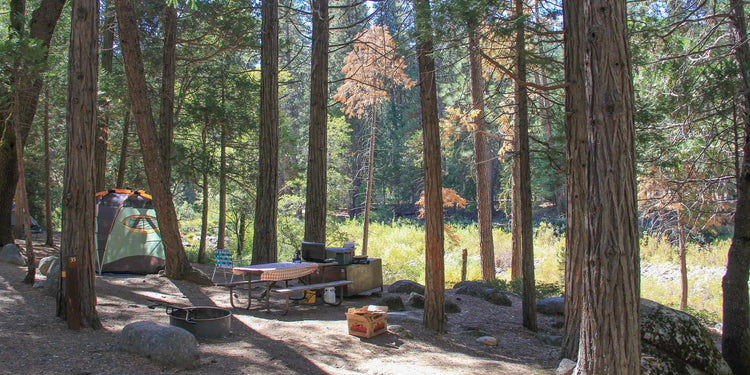Campgrounds vary significantly in their offerings, ranging from basic backcountry sites with few amenities to well-maintained sites with a wide range of on-site services.
To choose the right campground, consider the following 9 factors that align with your camping preferences:
1. Determine what type of campground you prefer, such as backcountry campsites, state and national park campgrounds, private campgrounds, RV campgrounds, or premium campsites.

2. Consider the location of the campground. If you seek a more secluded experience, opt for a campground off the beaten path. For a recreational camping experience, choose a campground closer to town for convenient access to restaurants and stores. Avoid campgrounds near freeways or major motorways due to potential noise pollution.
3. Assess the size of the campground. Larger campgrounds offer opportunities for socializing with other campers and provide more amenities and organized activities, but they can be loud and crowded. Smaller campgrounds offer a quieter, more natural camping experience with fewer amenities.
4. Examine the size of the campsites within the campground. Larger plots offer more privacy and tranquility, but don't assume that large campgrounds necessarily have larger sites. Some may overcrowd tents into small plots.

5. Take note of the proximity between RV campers and tent campers. RVs nearby may generate noise pollution from generators and other devices.
6. Familiarize yourself with the campground's fire rules. Campfires may not be allowed in certain areas due to the risk of forest fires. Additionally, check if firewood is provided or if you need to bring your own or purchase it from the campground.
7. Consider the amenities offered at the campground, with a particular focus on the quality and cleanliness of the bathrooms. Larger camps should have multiple bathrooms to accommodate campers adequately.

8. Review the campground rules before making a reservation. Pay attention to check-in/out times, pet policies, noise curfews, guest policies, car sleeping regulations, biking permissions, food storage rules, and firewood collection guidelines.
9. Evaluate the cost of the campground, which typically ranges from $15 to $55 per night. The price may vary depending on the popularity of the area and the amenities provided. Be aware of any additional fees, such as vehicle fees, extra person fees, electric hookup fees, pet fees, or fire pit rental fees.



